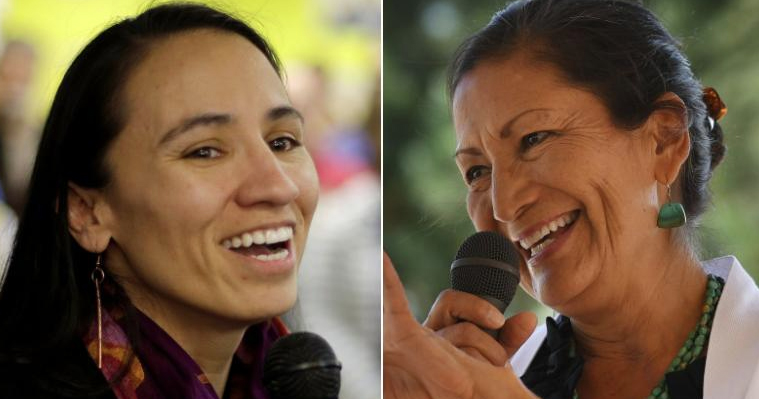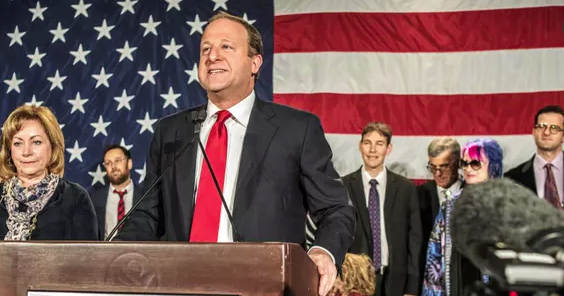The results of the US midterms last night saw the House of Representatives turn blue as the Democrats regained control. At the time of publication, the Democratic Party have secured 219 seats in the House of Congress, while the Republicans secured 193 seats.
In terms of the Senate, the Democrats were less successful, as the Republicans secured a majority of 51 seats compared to the Democrats’ 43.
The midterms saw a number of firsts in terms of representation and diversity as more LGBT+ people, Muslims, Latinos, younger people and immigrants ran for office than ever before.
The results of the midterms are hugely impactful and may indicate that a largely Democratic House will be able to push back the Trump’s administration in terms of gun control, abortion legislation, immigration rights and rights for LGBT+ people.
As results came in, victory became imminent for the left and a large voter turnout made one thing clear to Republican politicians: if you take away our rights, you lose your job.
In Oregon, Kate Brown, who is openly bisexual, became the country’s first LGBT+ Governor when she was elected in 2016, was re-elected as she defeated GOP Republican Knute Buehler.
Everyone deserves access to quality, affordable #healthcare. When people have access to health care, communities are healthier. More people can work, go to school, and contribute in other ways to their local economy. https://t.co/4wX3VUSmhX
— Governor Kate Brown (@OregonGovBrown) November 6, 2018
In Colorado, democratic nominee Jared Polis became the first openly gay man elected as Governor, after he ran a campaign advocating for single-payer health care, reform of the death penalty and sensible gun reform.
Two women – Sharice Davids and Deb Haaland – made US history as they became the first Native American women elected to Congress. Sharice Davids also became Kansas’ first lesbian member of Congress. Haaland was elected in New Mexico after the activist ran a campaign that advocated for a higher minimum wage, free Medicare for all and the impeachment of Donald Trump.

In Texas, Veronica Escobar and Sylvia Garcia made history as they became the first Latina women elected to Congress in Texas. Escobar, who is a former judge was victorious in El Paso while Garcia will represent Houston. The result is hugely significant considering that one-third of Texans are Latinx.
In Connecticut, Jahana Hayes, who won National Teacher of the Year in 2016, became the first black woman to represent the state in Congress.
Thank you choosing me to be your congresswoman and trusting me with your voice. #WeMadeHistory
— Jahana Hayes (@JahanaHayesCT) November 7, 2018
In Iowa, Abby Finkenauer was elected as the state’s first congresswoman. The 29 year-old is also one the youngest people ever elected to the House of Representatives.
Tonight we as Iowans made clear who we are. Tonight, Iowa rejected fear and division, and tonight, Iowa proved we step up for our neighbors. I truly believe hope is the reason we got this far – and hope is the reason we still have work to do. https://t.co/HYa19cCosT
— Abby Finkenauer (@Abby4Iowa) November 7, 2018
Maine elected Janet Mills who became the state’s first female Governor. Moreover, Mills will replace Maine’s current Governor, Republican Paul LePage, who has made seriously racist remarks in the past. Throughout her campaign, Mills challenged the rhetoric of LePage.
In Kentucky, Kim Davis, who in 2015 refused to issue a marriage licence to a gay couple, suffered a defeat to Democrat Elwood Caudill Jr.
© 2018 GCN (Gay Community News). All rights reserved.
Support GCN
GCN is a free, vital resource for Ireland’s LGBTQ+ community since 1988.
GCN is a trading name of National LGBT Federation CLG, a registered charity - Charity Number: 20034580.
GCN relies on the generous support of the community and allies to sustain the crucial work that we do. Producing GCN is costly, and, in an industry which has been hugely impacted by rising costs, we need your support to help sustain and grow this vital resource.
Supporting GCN for as little as €1.99 per month will help us continue our work as Ireland’s free, independent LGBTQ+ media.
